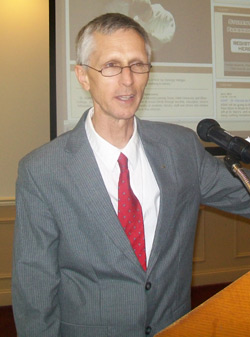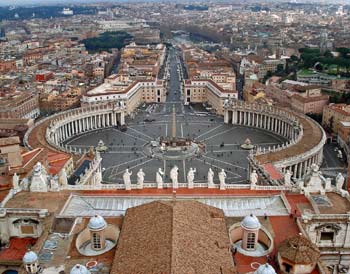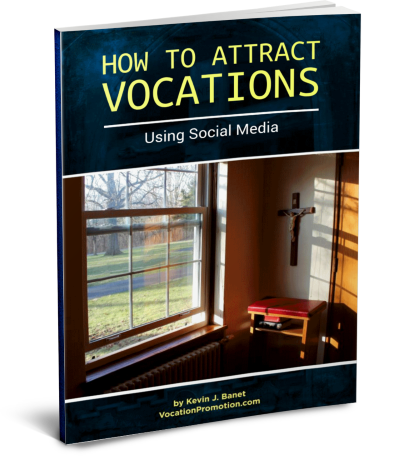
Use it or lose it — Kevin says we gotta get good with the “net.”
Marketing religious vocations needs to take a turn in a new direction. Just last week I gave a series of presentations about the internet to the Mercedarian Friars in Philadelphia, PA. Otherwise known as the Order of Mercy, these men are of a noble order that dates to 1218 in Spain, when they ransomed Christians held captive by Moors, or Muslims.
My message to the Mercedarians was that we must use the internet, and use it wisely, or we perish. The way I see it, there are various avenues, or “bridges” that lead to the door of a religious community. One is by the face-to-face contacts that our members make with those we serve and those in the outside world. The other is through the media, and most prominently, the internet.
Think of all the potential vocations out there as on the edge of a riverbank. Think of your monastery, or convent, as on the other side of a river. The “bridge” that you depend upon for vocations needs to include the internet, because that is where the vocations are. Your internet presence strengthens even those whom you meet through face-to-face contact.
“The hour is ours”
And vocations are out there — and our future looks good for this. Just last night I attended an Opus Dei evening of recollection, given by Fr. C.J. McCloskey, well known for his work in helping many people convert to the Catholic faith, including Newt Gingrich, Sam Brownback, and Dr. Bernard Nathanson. In encouraging us as Catholics to reach out to the world with our faith, Fr. C.J. said that “the hour is ours,” and that conversions and vocations “are up.”

Following the suggestion evoked by Bernini’s columns, which appear as arms of the Church open to the world, we should embrace and properly use the media.
My job as a marketer serving the Church is to bring marketing principles to bear in finding good vocations for religious communities. This might seem a bit materialistic at first. After all, what does selling Volkswagens have to do with vocations? Or Cream of Wheat with conversions?
However, the more I study the experts on advertising and marketing, the more I come to realize that we are dealing with the same human nature. Of course, the goal of finding one’s vocation in life is a much loftier aim than choosing one’s toothpaste. Giving yourself to God is at a higher level than choosing the car you want to drive.
But the art of attraction, education and the motivation of others rests on the bedrock of our common human nature. We are talking about human desires: in the end, it all boils down to our search for the good, the true and the beautiful. And those human desires need to be satisfied — to the extent that they can here on earth — with the technical knowledge of the media: print, TV, video, websites, and so forth.
Since the 1930’s the Church has encouraged us as both laymen and consecrated persons to use the media. In 1957 and 1971, it called these media “gifts of God.” (“Pastoral Instruction on the Means of Social Communication,” 1971, N. 2) It remains to us to use them effectively to promote the kingdom of God.
